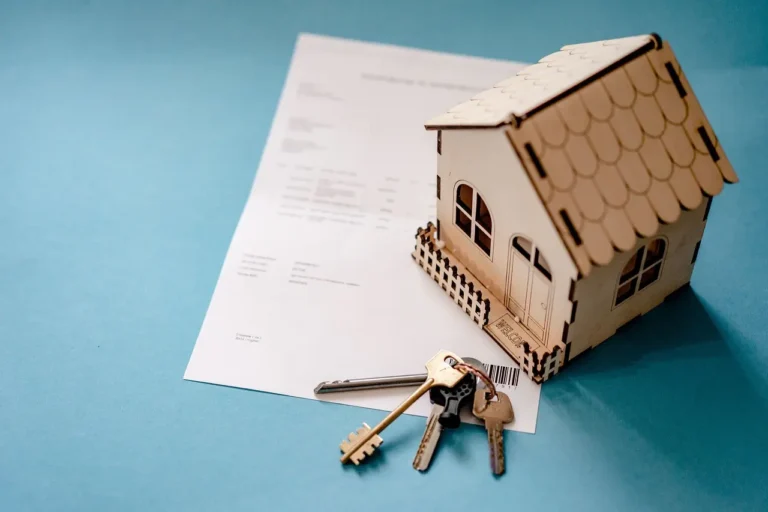Can investment properties make you rich? Uncover the secrets to successful real estate investing in 2025
Table of Contents
can property investment make you rich
Thinking about investing in real estate? You might wonder if it can make you rich. Many people in the U.S. have built wealth through real estate. With the right strategy, rental properties can bring in passive income and grow your wealth.
Investment properties offer a chance for long-term growth and financial stability. They let you diversify your investments and reduce reliance on traditional ones. Understanding the potential of these properties is key to making smart investment decisions.
Key Takeaways
- Investment properties can provide a lucrative way to build wealth through rental income and long-term appreciation.
- Real estate investing requires careful planning and research to ensure success.
- Rental properties can offer a stable source of passive income and help diversify your investment portfolio.
- Understanding the local real estate market and your investment goals is crucial for making informed decisions.
- Real estate investing can be a powerful tool for building long-term wealth and financial stability.
- Developing a well-informed strategy is essential for achieving success in real estate investing.
Understanding the Potential of Investment Properties
Thinking about investing in real estate? It’s key to know the potential of investment properties. Property investment can bring big returns, but you need to understand the different ways to make money. Real estate investing has a good track record, offering passive income properties and many real estate investment opportunities.
Looking into investment properties, you’ll see several choices. These include rental homes, fix-and-flip projects, and real estate investment trusts (REITs). Each choice has its own benefits and risks. It’s important to know what to expect and the potential returns.
Historical Returns in Real Estate Investment
Real estate investing has shown strong returns over time. Knowing the historical returns can help you make smart choices for your investment portfolio. It helps you find the best real estate investment opportunities.
Different Paths to Wealth Through Property
There are many ways to make money through property investment. These include rental homes, fix-and-flip projects, and REITs. Each path needs a different strategy and market understanding. By exploring these options, you can find the best fit for your goals and risk level.
Setting Realistic Expectations
It’s crucial to set realistic expectations when investing in real estate. You should know the potential returns and the risks of each option. Realistic expectations help you make informed choices and avoid common mistakes in property investment.
| Investment Option | Potential Returns | Risks |
|---|---|---|
| Rental Properties | 8-10% annual returns | Vacancy rates, property damage |
| Fix-and-Flip Projects | 15-20% annual returns | Market fluctuations, renovation costs |
| REITs | 4-6% annual returns | Market volatility, dividend cuts |
Essential Strategies for Successful Property Investment
Starting in real estate investment means knowing key strategies for success. Understanding the market, financing, and property management is crucial. Two main strategies for passive income are buy and hold properties and cash flow properties. Each requires careful thought about the local market and property type.
Success in property investment means knowing the pros and cons of each strategy. For example, buy and hold properties offer steady rental income. On the other hand, cash flow properties can bring in more through smart renovations and resales. Here are important things to think about when looking at investment properties:
- Location: Being close to amenities, public transport, and jobs can boost property value and rental income.
- Property type: Single-family homes, apartments, and commercial buildings each have their own benefits and potential returns.
- Financing options: Looking into different loans and interest rates can help you make the most of your investment.
By carefully looking at these factors and planning a smart strategy, you can boost your chances of success in investment properties. This includes buy and hold properties and cash flow properties. Always keep up with market trends and learn more about property investment best practices.
Maximizing Returns Through Smart Property Selection
Smart property selection is key to making money in real estate. You need to look at the location and market carefully. This means checking the local job market, population growth, and how easy it is to get around.
Think about what kind of property people want in an area. For instance, apartment buildings might be popular in cities. On the other hand, single-family homes could be more in demand in the suburbs. Knowing this helps you pick the right property and manage it well to earn more.
Key Considerations for Smart Property Selection
- Location: proximity to employment centers, public transportation, and amenities
- Property type: apartments, single-family homes, or commercial properties
- Market trends: local job market, population growth, and economic development
By looking at these factors and thinking about how to improve your property, you can boost its value. This approach is important whether you’re looking at rental properties or other real estate. It’s all about making smart choices to reach your investment goals.
| Property Type | Location | Potential Returns |
|---|---|---|
| Apartment Building | Urban Area | 8-10% annual return |
| Single-Family Home | Suburban Area | 6-8% annual return |
Building a Sustainable Real Estate Portfolio
When looking into investment properties and real estate investment opportunities, think long-term and diversify. Knowing the market well is key to smart choices about passive income properties and more.
For a well-rounded portfolio, mix residential and commercial properties. Also, consider real estate investment trusts (REITs) and crowdfunding. This mix can lower risks and boost returns. Important things to think about include:
- Location and market trends
- Property type and condition
- Rental income and cash flow potential
- Financing options and tax implications
By carefully looking at these points and keeping up with market news, you can make smart choices. This will help you build a portfolio that’s both sustainable and profitable. It will also provide passive income properties for many years.
Managing Risks and Avoiding Common Pitfalls
Real estate investing comes with risks and pitfalls. It’s key to manage these risks well to succeed. Knowing the challenges and taking steps to avoid them can help protect your investment.
Your aim is to make consistent returns from real estate. This means understanding the market and adapting to changes. Whether it’s residential or commercial, knowing market trends and risks is crucial. Strategies like diversification and hedging can help in uncertain times.
Financial Risk Management
Managing financial risks is vital in real estate. This includes diversifying your portfolio and hedging against market changes. Also, having the right insurance is important. These steps help protect your investment and ensure its long-term success.
Property Management Challenges
Good property management is key to making the most of your investment. This involves finding good tenants and keeping your properties in top shape. By tackling these challenges, you can avoid losses and keep your investment profitable.
As you grow your real estate portfolio, keep your long-term goals in mind. Focus on managing financial risks, property management, and protecting against market downturns. This way, you can safeguard your investment and see your properties grow in value.

Conclusion: Creating Your Path to Wealth Through Real Estate
Building wealth through real estate takes a smart plan and a long-term view. You need to understand the value of rental properties and know how to invest wisely. This way, you can make a steady path to financial success.
It’s important to be patient and keep learning about real estate. Choose properties carefully, manage risks well, and diversify your investments. This will help you make money without much work and build wealth for your family.
Start by looking into your local real estate market. Look for good investment chances and set clear financial goals. With a solid plan, you can begin your journey to wealth in the exciting world of real estate.
FAQ
What are the potential benefits of investing in investment properties?
Investing in properties can bring several benefits. You can earn passive income from rent. You can also grow your wealth as property values increase. Plus, it helps diversify your investments.
Real estate often offers better returns than other investments.
How can I get started with real estate investing?
To start, learn about the real estate market. Understand different strategies like buying and holding or flipping. Know your financial situation and how much risk you can take.
Do your homework on the market and the properties. Create a detailed plan for your investment.
What are the key factors to consider when selecting an investment property?
When choosing a property, think about the location. Look at its desirability, growth potential, and the local market. Consider the type of property, like a house or a commercial building.
Look for opportunities to add value. Also, check the property’s potential for cash flow and return on investment.
How can I manage the risks associated with real estate investing?
To manage risks, diversify your investments. Do thorough research on properties. Use smart financial strategies like leverage and insurance.
Be ready for market changes. Having a good property management plan is key.
What are the common mistakes to avoid when investing in investment properties?
Don’t overestimate returns or underestimate costs. Don’t skip market research or overleverage. And, have a clear exit plan.
Real estate investing should be a long-term strategy. Approach it with careful planning.
Share Your Experience
There are no reviews yet. Be the first one to write one.





